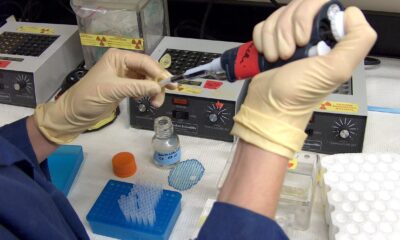

Editors Choice
Genetic Engineering Solutions For Medical And Agricultural Challenges
I recently had a discussion with an accomplished nuclear engineer. We talked about the misconceptions that many environmental activists have, which inevitably stifles progress. They focus on promoting technology that won’t help make a dent in our carbon footprint. Solar technology was a great example. Most people don’t realize how impractical solar energy is for delivering power.
On the other hand, there are a lot of other technologies that are providing significant benefits for environmentalism. Genetic engineering is one of the most influential.
It is important to take a look at all of the factors that come into play when assessing the net impact that a new technology has on the environment. Here is a brief SWOT analysis of the impact of genetic engineering on the environment.
Genetic engineering reduces the environmental footprint of the medical industry
The medical industry is another area where a genetic engineering is making a profound mark. Most people focus on the benefits that it provides to our health.
However, advances in genetic engineering for the healthcare industry can also be beneficial to the environment. The biggest benefit is that genetic material it’s obviously natural and non-toxic. It is relatively safe to produce, especially when compared to traditional pharmaceuticals. The Biotechnology Innovation Organization has delved into some of these applications.
The other benefit is that the solutions are generally Permanent. If we reach the point where we can cure diabetes with a genetic change, then we reduce each diabetic patient’s dependence on insulin. This significantly reduces the amount of resources and energy that needs to be expanded to produce the insulin needed to keep patients with the disease healthy.
There are a number of medical applications that depend on genetic engineering. Dr. Mary Griffith has discussed some of these procedures when it comes to resolving cornea problems.
Improving sustainability in the agricultural industry
Genetic engineering has been highly influential in the agricultural industry for many years. The practice of genetically modifying plants has been extremely controversial. Many anti-GMO activists argue that genetically modified foods can lead to any number of health problems.
The Cornell Alliance for Science cites that there is almost no evidence at all to substantiate any of these claims. Only a handful of studies have linked GMOs to any adverse side effects. All of these studies were poorly conducted, because they had small sample sizes and non-symmetrical control and focus groups.
The reality is that all existing evidence on genetic engineering in the agricultural industry is positive. In addition to their being virtually no evidence of any health problems, research shows that genetically modified plants are actually good for the environment.
This is a surprising conclusion for many people that have spent years criticizing organizations like Monsanto. They honestly believe that genetically modified plants are destructive to the environment, simply because they are not completely natural.
However, as Paul Vincelli, a blogger at Encia points out, genetically modified plants are able to produce more food in a smaller area. This minimizes the amount of energy that needs to be expanded to plant and harvest crops. It also minimizes the amount of water and other resources that I needed to grow that. Finally, it means that farmers do not need to clear forest land to grow food.
The biggest reason that genetically engineered crops are good for the environment is that they reduce our dependence on pesticides. Vincelli describes this in his post:
“My interest in GE crops stems from my desire to provide more effective and sustainable plant disease control for farmers worldwide. Diseases often destroy 10 to 15 percent of potential crop production, resulting in global losses of billions of dollars annually. The risk of disease-related losses provides an incentive to farmers to use disease-control products such as pesticides.”
This means that we could have a profound beneficial impact on the environment by encouraging Latin American farmers to use genetically modified agricultural practices. It would reduce the amount of rain forest land that needed to be cleared for agricultural purposes.
Genetic Engineering is Good for the Environment
GE technology has had a very positive impact on our world. The change has been most significant in the agricultural industry, but the medical industry has been affected to. Fortunately, it has had a positive impact on the environment, which should make our lives much better in the long-term.


 Environment12 months ago
Environment12 months agoAre Polymer Banknotes: an Eco-Friendly Trend or a Groundswell?

 Features11 months ago
Features11 months agoEco-Friendly Cryptocurrencies: Sustainable Investment Choices

 Features12 months ago
Features12 months agoEco-Friendly Crypto Traders Must Find the Right Exchange

 Energy11 months ago
Energy11 months agoThe Growing Role of Solar Panels in Ireland’s Energy Future


























